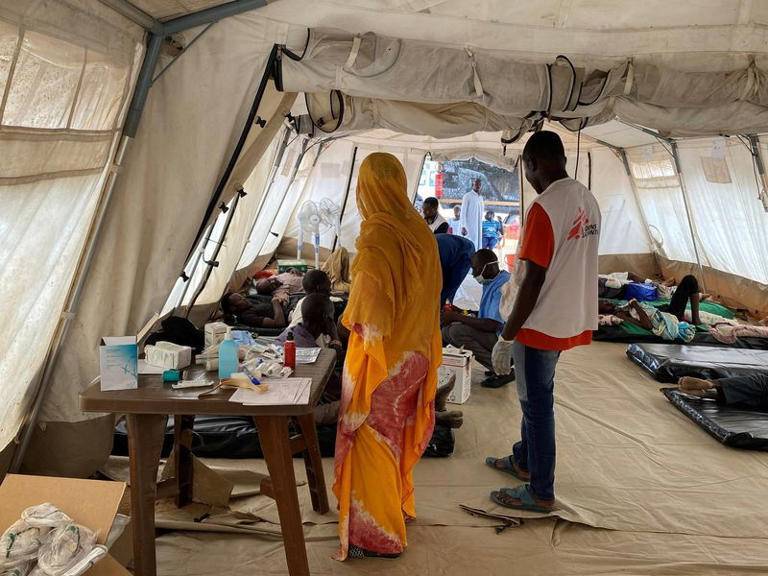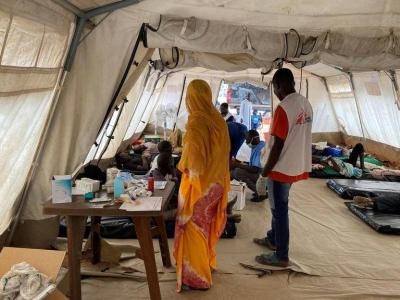The capital of Sudan, Khartoum, witnessed a surge in clashes, artillery shelling, and airstrikes today, Sunday, as the conflict between the Sudanese army and the "Rapid Support Forces" enters its eleventh week, resulting in the displacement of 2.5 million people and creating a humanitarian crisis. Residents in Khartoum, Bahri, and Omdurman— the three cities that form the Greater Khartoum area—reported that intense fighting broke out last night and continued into the morning.
Witnesses told Reuters that there has been a sharp increase in violence in recent days in Nyala, the largest city in the Darfur region of western Sudan. The Rapid Support Forces announced in a statement that they had completely taken control of a camp belonging to the Central Reserve Police in southern Khartoum, sharing footage of their fighters inside the facility, with some seen removing ammunition boxes from one of the warehouses. Reuters has not yet been able to verify this footage or the statement from the Rapid Support Forces, and there has been no comment from the army or police.
The United Nations raised alarms yesterday concerning ethnic targeting, highlighting the killings of members of the Masalit community in Geneina in West Darfur. On Saturday, the spokesperson for the UN High Commissioner for Human Rights, Ravina Shamdasani, called for a safe passage for those fleeing Geneina and assistance for aid workers to reach the area, following reports of executions without fair trial between the city and border areas, along with the continued spread of hate speech, including calls for the killing of or expelling the "Masalit."
The International Organization for Migration stated that nearly two million people, among those displaced by the conflict in Sudan, have been internally displaced, and nearly 600,000 fled to neighboring countries. In Geneina, which has experienced nearly a complete breakdown in communications networks and aid supplies in recent weeks, attacks by Arab militias and Rapid Support Forces have caused tens of thousands to flee across the border into Chad.
Witnesses reported a notable deterioration in the security situation in Nyala over the past few days, with intense clashes erupting in some residential neighborhoods. It is noteworthy that the Sudanese capital and the city of Geneina are the most affected by the conflict that erupted on April 15.
Fighting has escalated since both sides of the conflict violated a series of ceasefire agreements reached in Jeddah following talks led by the United States and Saudi Arabia. Talks were postponed last week. The army, led by Abdel Fattah al-Burhan, is using airstrikes and heavy artillery in an attempt to drive the Rapid Support Forces, led by Mohamed Hamdan Dagalo, known as Hemeti, out of Khartoum neighborhoods.




